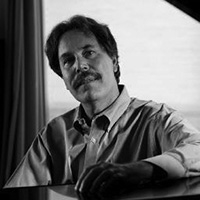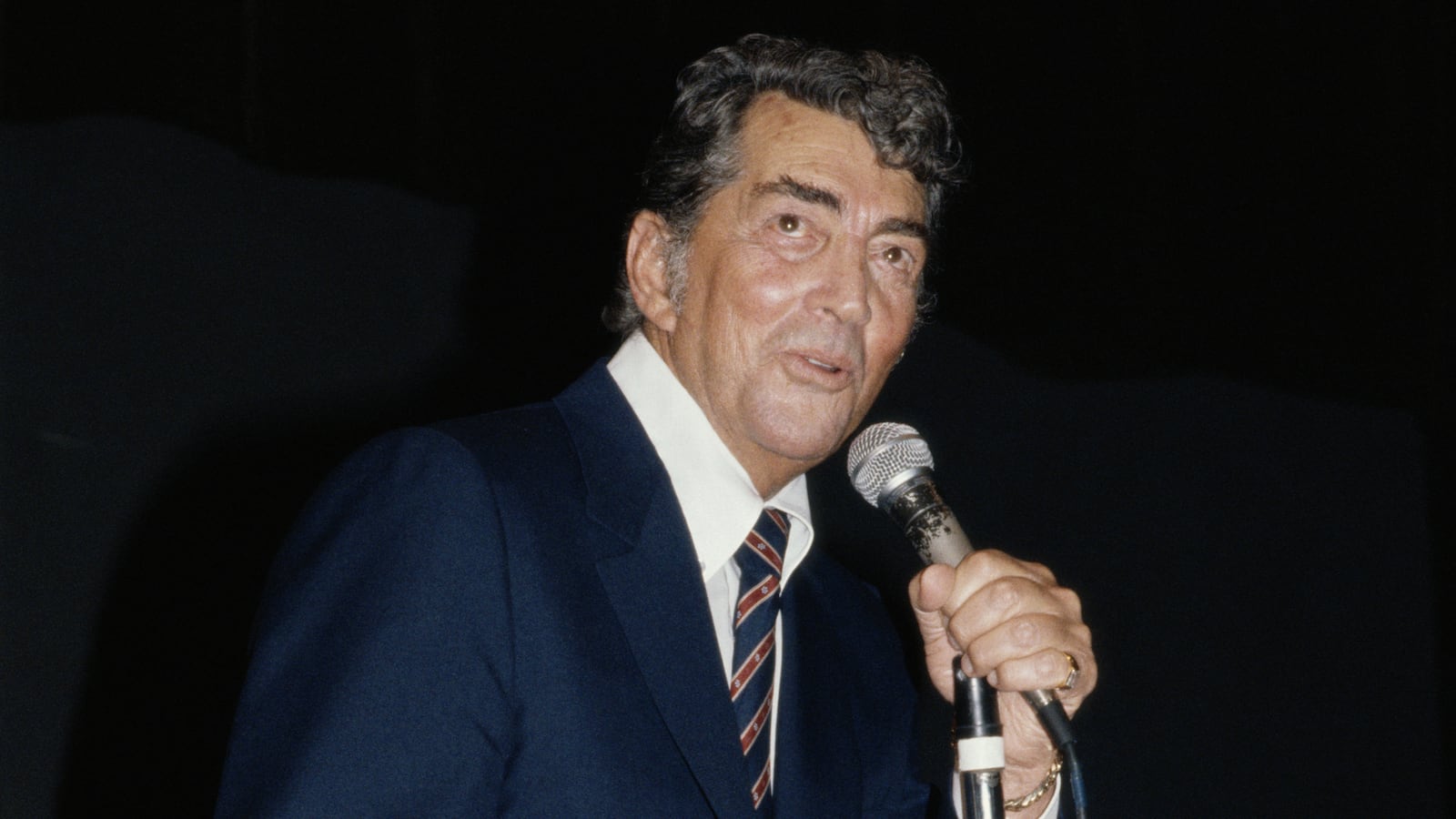We celebrated Frank Sinatra’s centenary a few months back, and the amount of media coverage was stunning. I can’t recall another musician generating so much acclaim after 100 years. Sinatra received veneration in full-scale tributes from HBO, PBS, CBS, TCM, and other three-initial media powerhouses, along with a stack of books, articles, album reissues, and tribute concerts.
Next year will be the 100th anniversary of Dean Martin’s birth, and I am curious to see how Sinatra’s old colleague and fellow Rat Packer fares. Will he get the red carpet treatment, and find a place on the radar screens of new fans? Or will his centenary celebrations be limited to old-timers who remember Martin from decades long gone?
Pop culture has forgotten so many of the top tier entertainers of the middle decades of the 20th century. A few days ago, officials at the Bob Hope Airport in Southern California voted to change its name to the Hollywood Burbank Airport. No comedian in the U.S. had a larger audience than Hope in the years following World War II, but now the airport execs felt they needed a name with a bigger draw for tourists. Other icons of the past, from Johnny Carson to Walter Cronkite, would struggle to get 10 percent name recognition among millennials. Such is the fickleness of the hive mind at the heart of pop culture.
Dean Martin is especially vulnerable because he spread himself across so many fields. He could act, sing, dance, emcee, play the straight man to Jerry Lewis, or tell his own jokes. He could improvise routines with the Rat Pack in front of a casino audience, or host a TV variety show. He could play a credible cowboy or a super spy in a Hollywood movie, but he was just as happy acting like a drunk on stage or performing one of his ethnic novelty songs that mixed Italian phrases and American slang. And judging by infomercials I’ve seen lately, he might be best known to today’s audiences for hosting a celebrity roast show on NBC.
In other words, Martin was that greatest of rarities: a top tier star who didn’t mind playing second fiddle. He probably even preferred it. Martin fed off the vibe in the room and the other folks on stage—it didn’t matter who, Frank Sinatra or Jerry Lewis or Ella Fitzgerald or Louis Armstrong, it was all the same to Dino.
But any comparison with Sinatra will eventually lead to the tricky question: how good of a singer was Dean Martin? This is a surprisingly difficult subject to address, if only because Martin had such a cavalier attitude to his own vocal skills.
Jerry Jerome, who produced one of Martin’s first recording sessions back in 1947, was shocked at how jaded this rising star already was. Martin’s career had hardly begun, but he didn’t show the slightest excitement at making a record. He was “very impatient to get on with things,” and his banter in the studio was along the lines of “Hell, let’s do it. I don’t care. Fuck it.”
Jerry Lewis was dumbfounded by the extent of this nonchalance when he came down with hepatitis right before the duo’s opening night at Ciro’s, where the Hollywood elite would be in the audience to size them up. Faced with performing onstage alone without Lewis’s madcap comedy routines to spark the show, Martin decided to prepare by playing a round of golf.
“What, you’re going to do a single for the first time in eight years, and you’re not planning a strategy?” Lewis asked. “You’re not going to rehearse?” Martin responded: “Rehearse what? All I need is our music books. I pick a couple of tunes, throw in a couple of ideas that feel right, and have some fun.”
There’s a term in Italian for this kind of attitude: menefreghismo, a couldn’t-care-less manner that brings with it overtones of extreme macho coolness and total disregard for all consequences. No entertainer from the 20th century captured this posture with more authenticity than Dean Martin.
My own feelings about Martin’s vocal work are hopelessly divided. At one moment I am dazzled, and convinced the he could have been one of the greatest American singers of his day. And then the next, I want to scream at some frivolous and crass stunt he performs, completely out of alignment with the spirit of the music.
In a rare film of the Rat Pack from 1965, Martin comes on stage and launches into an endearing rendition of “You’re Nobody ’Til Somebody Loves You.” The audience is eating out of his hand. I am, too. The sheer warmth and human quality of his voice are enveloping. And then he stops mid-phrase with a grimace on his face, almost as if he needs to belch. “I’ve got enough gas to go to Pittsburgh,” he explains. The audience laughs—that was his goal all along—and then Martin returns to the song. Miracle of miracles, he somehow manages to recapture the wistful mood of the lyrics, and grab our hearts.
Martin’s live performances were filled with these antics. He sings “Pennies from Heaven” but changes it into “Bourbon from Heaven.” “When You’re Smiling” gets transformed into “When You’re Drinking” (rhymes with “You get stinking”). “I’d like to do some more for you,” he tells the audience after a few songs, “but I’m lucky that I remember these.”
The audience is always entertained, and walks away feeling they got their money’s worth. Yet I can’t help wondering, what could Martin have achieved if he had taken singing as seriously as his friend Mr. Sinatra did? Sinatra planned every session as though it were the Normandy invasion, demanding the highest quality arrangers, musicians, and songs. Martin, in contrast, showed up at the date, sang what he was given to sing, and went off to the golf course. We can hear the difference today: Sinatra left behind a classic body of work, while Martin made a lot of mediocre (or worse) albums.
Yet Martin could have achieved greatness with his gifts. He possessed one of the richest and most seductive voices of his generation, as fetching as his leading-man good looks. Of American singers of his day, only Nat King Cole had a more serene and comforting way of articulating notes. Even Sinatra couldn’t achieve that kind of soothing resonance in the lower range. Martin’s phrasing was assured and he seemed never to go off pitch. And Dino’s stage presence was unsurpassed. I’ve never seen any performer more relaxed and unruffled in front of an audience. He radiated a kind of charm and offhand charisma that even double platinum stars can’t match.
Elvis Presley once told Martin’s daughter Deana, “They call me the King of Rock and Roll, but your dad is the King of Cool.” Watch Presley on stage or on film, and see how much he learned from Martin. To some degree, Presley took the formula Dean had crafted and turned it into a rock ‘n’ roll posture, with a little more edginess and a couple notches more volume from the amplifiers, but with most of the other ingredients intact.
For all his talent, Martin only left behind a handful of recorded performances that showcase his artistry in a suitable setting. His 1960 album This Time I’m Swingin’ finds Martin interpreting high quality songs—by Cole Porter, Jimmy Van Heusen, and others—in arrangements written and conducted by Nelson Riddle. It’s almost like a Sinatra album with Martin standing in for the absent Chairman of the Board. Dean Martin was one of the few singers on the planet who could live up to the comparisons implicit in such a setting. He puts his stamp on the music, and leaves you wishing he had made a half-dozen other albums in this same mold.
Another glimpse of Martin as a poised, serious vocalist comes on the 1959 project Sleep Warm, a theme album built around tunes about slumber and dreaming. Under different circumstances, this could have collapsed into another corny project filled with novelty numbers, similar to others in the degraded Martin discography. But in this instance, Frank Sinatra insisted on conducting the orchestra, and his presence clearly had an effect on Martin. By all accounts, Dino never felt pressured or under-the-gun, but in this one instance, I sense that he is striving to match the Sinatra mystique. He puts everything he’s got into these lullabies, and the result is a classic album that still mesmerizes today.
The last outstanding Dean Martin album, in my opinion, is Dream with Dean from 1964. Here again he relies on first-rate songs, and the accompaniment is a small combo of stellar jazz musicians, including Barney Kessel and Red Mitchell. It’s a short album, just 30 minutes long, but a must-hear for anyone who wants to imagine what Dean Martin might have achieved as a pure jazz singer. Alas, Martin had no such aspirations. He soon moved on, to a series of over-produced and under-inspired projects, filled with Latin numbers, country songs, and pop-rock covers.
There’s one more place to hear first-rate examples of Martin’s singing: in his movies. When he had to deliver a vocal as part of a romantic scene, Martin put aside all of the shtick and gimmicks, and brought out the emotional power of the lyric with surprising authenticity. Hear him sing “I’m in the Mood for Love” from That’s My Boy (1951) or “You’re the Right One” from The Caddy (1953), and you get a sense of why America fell in love with Dean Martin at the dawn of the ’50s.
But these are exceptions to the rule. Martin is most famous today for novelty and ethnic tunes—“Volare,” “That’s Amore,” “Mambo Italiano” and “Ain’t That a Kick in the Head?” These are sweet and harmless, and might add the right spice as background music for a cocktail party. But you don’t establish a major reputation as a vocalist on such lightweight stuff. The only Martin top ten hit built on a substantial song is “Everybody Loves Somebody,” with music from the singer’s accompanist Ken Lane.
“My feelings on Dean Martin are mixed,” explains David Scott, professor at Berklee College of Music. “His stage persona is endearing but (to me) distracting. His vocal mannerisms, like the Crosby-esque mordent, can become tiresome. His choice in repertoire often seems second-rate. On the other hand, his relaxed demeanor is backed up by a relaxed vocal delivery. He never pushes. I can’t think of a recording where he sounds vocally tired or lacking resonance. His diction is clear and swinging.”
“It’s hard to really ‘hear’ Dean Martin in the midst of all the overproduced recordings,” adds Laurie Antonioli, who chairs the vocal department at the California Jazz Conservatory. “The choirs and strings are distracting.” She believes that his recordings are hindered by the “clichéd, theatrical nature of his style,” but adds that Martin “sang in tune, for the most part, had a good feel for a certain kind of music.”
I can’t disagree with these judgments. Looking through Martin’s body of recorded work, I am left with a deep sense of frustration. He had all the tools for greatness as a jazz singer, but he didn’t give a damn. Yet I do, and so do, I suspect, lots of others fans of the classic American popular songs.
As a result, his centenary next year will be filled with praise of Dean’s coolness and aplomb, and laudatory acknowledgement of his versatility as an entertainer. But he won’t get the kind of attention for his singing that Sinatra received on his 100th birthday. For all his renown, Dean Martin is still one of the greatest might-have-beens of American pop music history.
And what would Martin say about all this. Probably something to the tune of “Ain’t that a kick in the head?”





